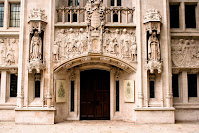Article 8 provides that everyone has the right to respect for his private and family life, his home and his correspondence. It is a qualified right - "There shall be no interference
by a public authority with the exercise of this right except such as is in accordance with the law and is necessary in a democratic society in the interests of national security, public safety or the economic wellbeing of the country, for the prevention of disorder or crime, for the protection of health or morals, or for the protection of the rights and freedoms of others.”The modern law of England and Wales is a far cry from the position set out by Sir Robert Megarry in the Malone case.
Particularly since the Human Rights Act 1998, the judges have established a tort of misuse of private information. The values set out in Article 8 (and Article 10) are part of this cause of action. This is a remarkable development in the common law emanating from convention rights but it is a judicial development that has, so far, received very little parliamentary attention.
On 16 February, the Supreme Court gave judgment in in Bloomberg LP v ZXC [2022] UKSC 5 where the issue was whether, in general, a person under criminal investigation has, prior to being charged, a reasonable expectation of privacy in respect of information relating to that investigation. The court upheld decisions of the High Court judge (Nicklin J) and the Court of Appeal (Civil Division) that, in all the circumstances of the case, there was such a reasonable expectation.
In deciding whether, on the facts of a particular case, there is such a reasonable expectation the court will apply a 2-stage test set out in Murray v Express Newspapers plc [2008] EWCA Civ 446. See also the earlier case of McKennitt v Ash [2006] EWCA Civ 1714.
Stage 1 - whether the claimant objectively has a reasonable expectation of privacy in the relevant information.
Stage 2 - whether that expectation is outweighed by the publisher’s right to freedom of expression. This involves a balancing exercise between the claimant’s article 8 right to privacy and the publisher’s article 10 right to freedom of expression.
In most cases it is likely to be difficult for any publisher to know in advance the likely outcome of any action that might be brought should information relating to a criminal investigation be published.
Consequently, it is unsurprising that there is now some concern that the present law may not be striking a proper balance between privacy law and press freedom - The Guardian 18 February.
Against that is a view, expressed on Inforrm's Blog by Mathilde Groppo, that the outcome of the case is "unsurprising" and "provides welcome confirmation that those under criminal investigation are entitled to privacy protections" because "the potentially devastating consequences of individuals identified as suspects in criminal cases (but never charged) have long been recognised".
Parliament:
As already noted, the tort of misuse of private information has received almost no parliamentary attention but this may be about to change since the government's consultation about a proposed British Bill of Rights asks a question about the limits on interference with the press and other publishers.
A reported by The Guardian 19 February, there are some indications that privacy laws could be "rolled back" as part of Minister's plans to replace the Human Rights Act. In itself, that may be desirable but there is much in and about the government's ideas for human rights protection that ought to be giving rise to serious concern and perhaps greater concern than appears to be evident at the time of writing.
Law and Lawyers: The future of human rights in the UK (obiterj.blogspot.com)
It may be that pre-charge anonymity has public support - see this article relating to an opinion poll in 2018. The poll was conducted after the Cliff Richard case - see Sir Cliff Richard v BBC [2018] EWHC 1837 (Ch).
Interestingly, since 1 October 2012, there are statutory restrictions on reporting allegations against teachers - see the Education Act 2011 section 13. This made teachers the first group of people in British legal history to be given automatic anonymity when they are accused of conduct amounting to a criminal offence.
19 February 2022





No comments:
Post a Comment